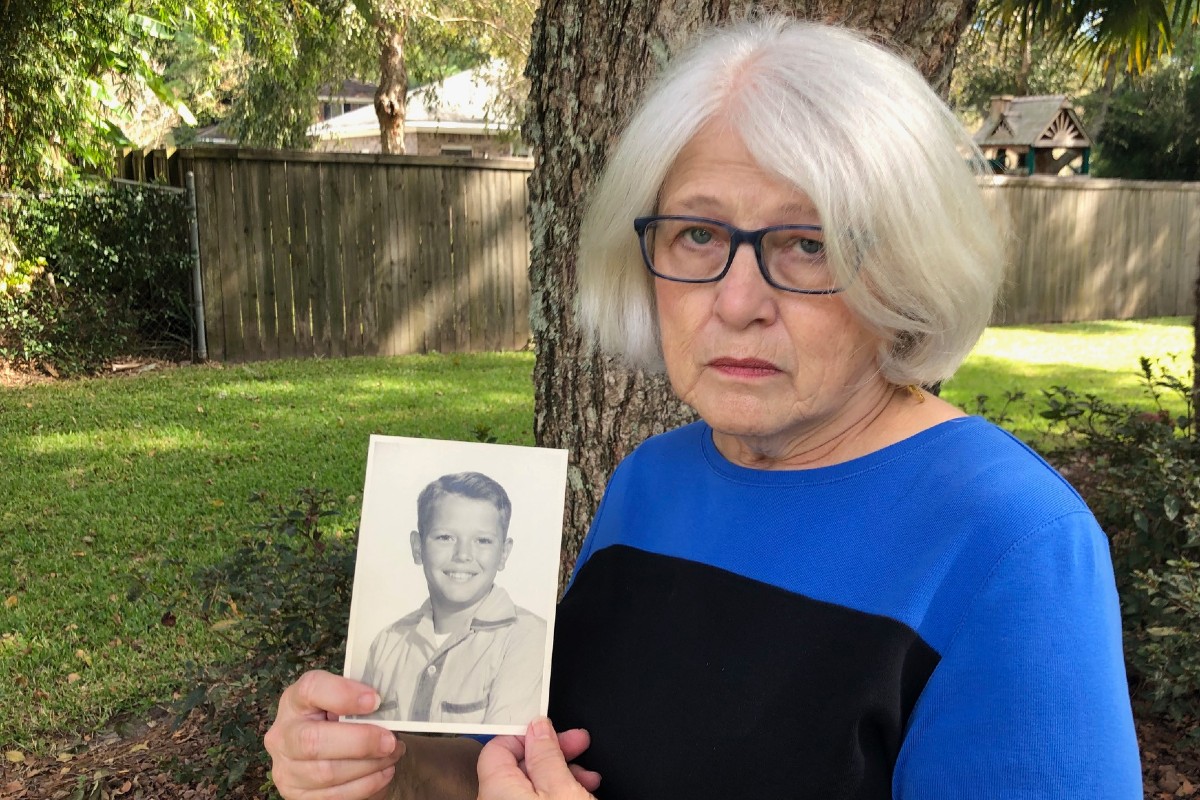
James Island resident Rose Ann Boxx mourns the death of her brother from cancer almost 40 years ago. Photo by Andy Brack.
Staff reports | When James Island resident Rose Ann Boxx’s brother turned 32 in the late 1970s, he was diagnosed with colon cancer.
The diagnosis for Robert Thomas, came as a surprise — because of his age and also because there was no history of cancer of any kind on either side of the family. But another surprise loomed for kids like Rose Ann and Robert who spent formative years in the late 1950s at Camp Lejeune where their father was a Marine — the water was toxic, poisoned for more than three decades by chemicals that leaked into the water supply. Thousands — including Robert and, eventually, Rose Ann — got cancer.
She recalled last week how her older brother Robert went through several rounds of chemotherapy and radiation treatment to try to reverse the disease’s spread. In the throes of the disease, he managed to make jokes, she said, likening himself to a large Pac-Man, his body being slowly gnawed away by a foreign, floating enemy.
“They’ll take a little bit of me every time, but that’s okay,” he would tell Boxx.
 For a while, things improved. He continued his job working for Charleston County and meeting up with Boxx for the occasional lunch. But then the cancer returned, this time in his lymph nodes. Robert died Sept. 30, 1982. He was 37.
For a while, things improved. He continued his job working for Charleston County and meeting up with Boxx for the occasional lunch. But then the cancer returned, this time in his lymph nodes. Robert died Sept. 30, 1982. He was 37.
Nearly 40 years later, Boxx is still trying to make sense of her brother’s death. She counts herself among the thousands of family members of veterans fighting for recognition and compensation from the U.S. military over decades of negligent water contamination at Lejeune that caused myriad cancers and other significant negative health impacts in servicemembers, their dependents and employees on the base.
A new bill currently working its way through Congress aims to provide relief. The Camp Lejeune Justice Act would allow anyone exposed to contamination on the base between 1953 and 1987 to sue the government for damages. Despite some 75 cosponsors, the Justice Act has remained stalled in committee. On Thursday, the bill was referred to the House Subcommittee on the Constitution, Civil Rights and Civil Liberties. But advocates — a step short of hopeful — remain determined to push it across the line.
“We’re going to stand up for this issue until we see something happen,” said Curtis Crawford, 58, a Virginia resident who spent time on Lejeune when he was younger and now suffers from several conditions, including fibromyalgia and vitiligo, that he attributes to the water. “None of us should have this stuff. We should be thriving instead of dying.”
- To read the full story by writer Lewis Kendall in our sister publication Statehouse Report, click here. A related recent commentary is here.
- Have a comment? Send to: editor@charlestoncurrents.com.



 We Can Do Better, South Carolina!
We Can Do Better, South Carolina!
























